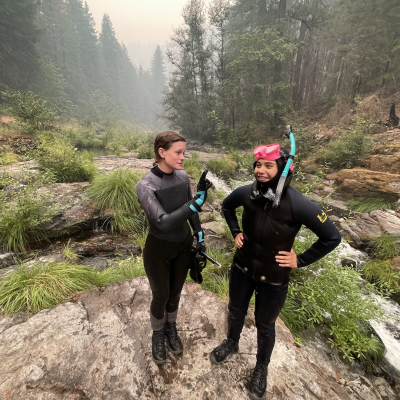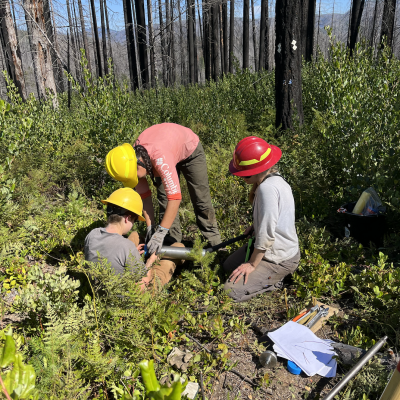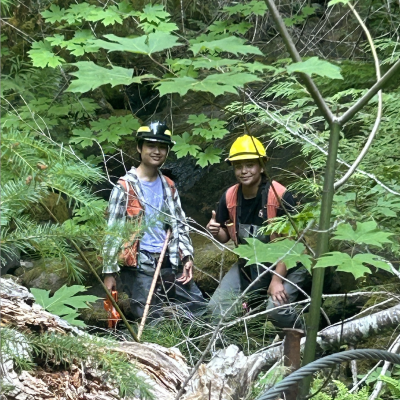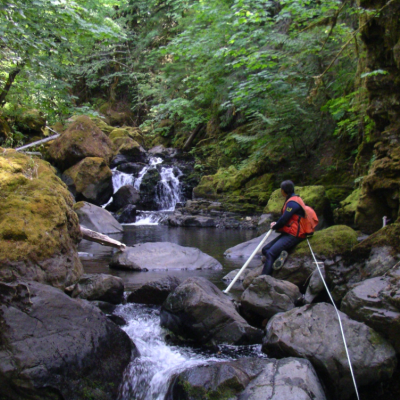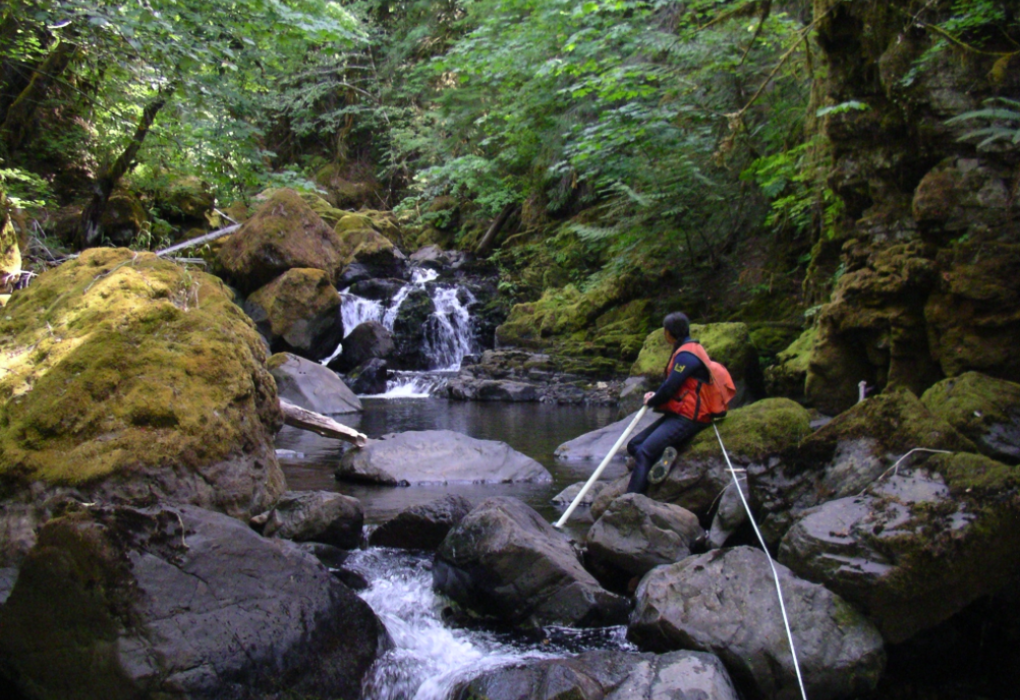A Summer Internship in the Umpqua National Forest
This summer, the Native Fish Society hosted a full-time, seasonal Umpqua National Forest Fisheries Intern position, dedicated to fisheries fieldwork and habitat restoration in partnership with the Umpqua National Forest. This work included conservation activities such as fish habitat surveys, aquatic invertebrate assessments, and data management, contributing to broader restoration and stewardship efforts within the Umpqua Basin.
This year’s intern, Eliza Porter, studies Environmental Science at Oregon State University, specializing in Aquatic Biology with a minor in Indigenous Studies. With a lifelong passion for salmonids, freshwater ecosystems, and conservation, Eliza brought both experience and enthusiasm to the role. Read on for Eliza’s firsthand account of her summer internship experience and the insights she gained along the way!
~~~~~~~~~~~~~~~~
"From June to September 2024, I worked as a fisheries intern with the Native Fish Society (NFS) and the USDA Forest Service (USFS). As someone with a lifelong passion for the outdoors, especially freshwater ecosystems, this internship allowed me to immerse myself in hands-on conservation work, reinforcing my dedication to protecting these precious environments.
Growing up I was fortunate to have a connection with the outdoors, including the streams and rivers around me. I have always found a lot of joy when being near water and greatly appreciate freshwater ecosystems and their organisms, which spark my curiosity and care. This passion guided my decision to study Environmental Science at Oregon State University, where I’ve pursued minors in Fisheries, Wildlife and Conservation Sciences, and Indigenous Studies. As a 4th-year student, set to graduate after spring term, I see this internship as a vital step in my journey toward a career in fisheries conservation.
During the internship, my primary responsibilities involved conducting fisheries-related fieldwork in the Umpqua National Forest. Working alongside multiple agencies—state, federal, and non-profit—I engaged in a variety of activities that deepened my understanding of native fish species and their habitats. These activities included: conducting culvert surveys to evaluate their impact on aquatic organism passage, performing stream surveys and snorkeling to monitor fish populations and habitat conditions, and assisting in various habitat restoration and monitoring projects, often in collaboration with partners like the Oregon Department of Fish and Wildlife (ODFW) and the Bureau of Land Management (BLM). Working with the USFS also allowed me the unique opportunity to gain experience working with other USFS specialists such as wildlife biologists, soil scientists, and hydrologists. Some of the fieldwork with these specialists included collecting soil samples, deploying and retrieving game cameras and acoustic recording units, and retrieving thermograms. These collaborative and diverse efforts exposed me to a wide range of conservation work, enriching my understanding of both the ecosystems and the stakeholders involved in their conservation.
My favorite part of this internship was getting to meet so many people who came from various backgrounds whether it was the state they came from, their educational background, or the agency they worked for. I think that being able to listen to different perspectives on the management of native fishes in the Umpqua Basin was valuable and allowed me to see conservation efforts from various points of view. This taught me to keep an open mind and consider many viewpoints which I think is important in the conservation and restoration of natural resources.
One of the most significant challenges during the internship was the impact of wildfires in the Umpqua National Forest. The fires reshaped our plans, limiting access to large portions of the forest and forcing us to be adaptable. This unpredictability taught me how to be flexible, find new work opportunities, and continue making meaningful contributions despite environmental setbacks. With my USFS boss and crew lead away on fire assignments for much of the summer, I also had to step up and take on more responsibilities. Learning to work independently, navigate complex fieldwork schedules, and communicate effectively with other agencies became essential aspects of my professional development.
The technical and interpersonal skills I developed over the summer will be invaluable as I pursue a career in conservation. I strengthened my abilities in fish identification, stream habitat measurements, and communication. Most importantly, I gained confidence in working independently and in a group. Learning to manage my own time, set goals, and adapt to changing circumstances has prepared me for the challenges ahead in both professional and academic settings.
This internship strengthened my desire to work in fisheries conservation. The hands-on experience I gained with native fish species and their habitats, combined with the opportunity to collaborate with various agencies, has provided me with the tools and insights necessary for a future career in conservation. Whether as a fish biologist or in another role within environmental science, I am dedicated to the protection and restoration of the Pacific Northwest’s native fish populations.
As I approach graduation, I am incredibly grateful for the opportunities this internship provided. It allowed me to deepen my connection to freshwater ecosystems, work with passionate professionals, and gain a clearer sense of my future career path. My love for rivers, streams, wild native fish, and the organisms that depend on them, continues to grow, and I am excited for what my path will look like post-graduation." - Eliza Porter, Native Fish Society Umpqua National Forest 2024 Summer Intern
~~~~~~~~~~~~~~~~
Having an intern conducting vital fieldwork and data collection in the Umpqua National Forest this summer greatly helps guide our future habitat restoration efforts along the Umpqua Basin. Additionally, by providing internship opportunities like these, we can not only help offer hands-on experience for future conservationists like Eliza, but also continue our ongoing efforts to restore and protect the important homewaters we all love! To learn more about our current campaigns and how you can take action, click here.
See below for some photos from Eliza’s work over the summer that show her experiences in the field:
